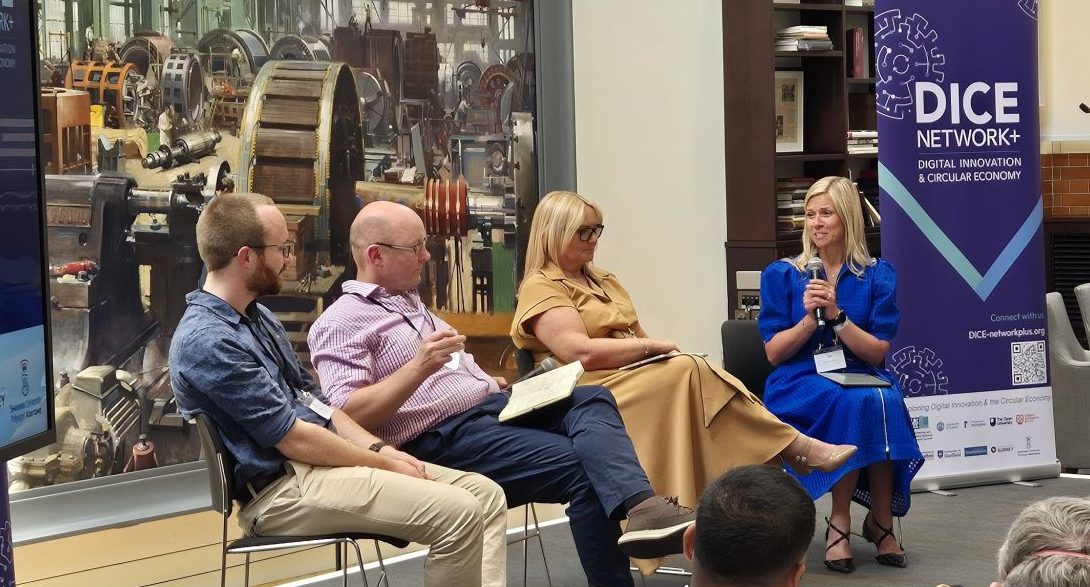
UK Can Harness Digital Shift for Circular Economy
Experts from industry, academia, and government met at the Science Museum in London this week for the launch of the Digital Innovation and Circular Economy Network Plus (DICE+) – a major new UKRI-funded initiative that will explore how digital technologies, including artificial intelligence (AI), can accelerate the shift to a circular economy.
Led by the University of Exeter in collaboration with nine UK universities and industry partners including the Ellen MacArthur Foundation, Rolls Royce and SAP, the network aims to embed circular principles into digital innovation – and harness digital tools to drive sustainable business models at scale.
“We know most companies are now invested in both digital transformation and circular economy goals, with half of organisations implementing AI in their infrastructure and 55% of large businesses committed to circularity,” said Professor Fiona Charnley, Co-Director of the Exeter Centre for Circular Economy.
“For the UK to meet its ambitions in AI and clean energy, we must embed circular economy principles at the design stage. By connecting partners across sectors, DICE+ will help build this capacity across the UK and beyond – creating digital innovations that are sustainable and using those innovations to supercharge the adoption of circular models.”
Despite growing investment in sustainability, the world is moving backwards on circularity: the share of recyclable materials in the global economy has dropped from 9% to 6.9% in recent years. Meanwhile, the transition to clean energy and digital solutions is creating new pressure on critical resources that are difficult to recycle at scale.
“We need circularity now because we’re hitting planetary boundaries,” said Darren West, Global Head of Circular Economy Solutions at SAP, during his keynote on agentic AI. “The good news is that circularity drives both sustainability and profit.
“We’re already seeing how AI can save hours on ESG reporting, or how digital product passports can help track and recover high-value materials. With new regulations like ESPR on the horizon, manufacturers must start designing modular, repairable, and traceable products. That’s where this network can help.”
More than 50 delegates attended the launch event – including representatives from VISA, Jaguar-Land Rover, and SAP – as panel discussions and roundtables focused on sharing knowledge, tools, and challenges to align digital systems with circular principles.
Over the next three years, the DICE+ network will fund research, industry placements and feasibility studies to address these two challenges:
The first funding call for Knowledge Exchange Placements and the first round of Feasibility Studies open in May 2025, with the Demonstrator call scheduled for early 2026.
https://news.exeter.ac.uk/faculty-of-environment-science-and-economy/uk-can-use-digital-revolution-to-adopt-a-circular-economy-say-experts/
